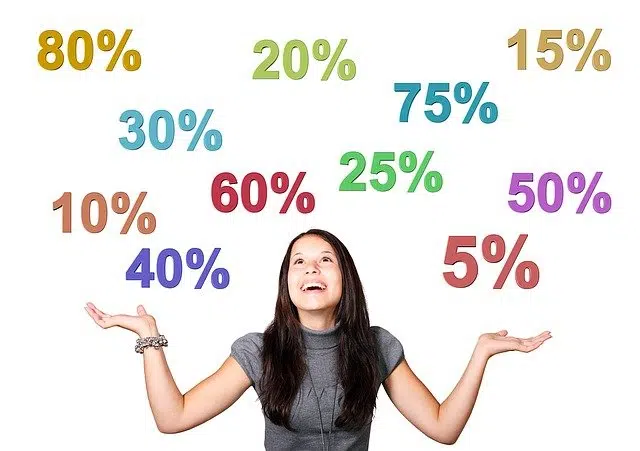
A product is said to be on sale when it can be purchased at a lower price than usual.
An offer (a term derived from the Latin offerre ) is a proposal made with the promise to perform or give something . The person who announces an offer is informing his intentions to deliver an object or carry out an action, generally in exchange for something or, at least, with the purpose that the other person accepts it. For example: "My boss made me an offer that I couldn't refuse: double the salary in exchange for accepting regional management," "The offer from the investment group was $25 million for 50% of the player's transfer."
An offer is, on the other hand, a product that is offered for sale at a discounted price. If a product has a usual price of 50 pesos, since it is on sale it can be sold at 40 pesos or a lower price: "My brother bought a new television that was on sale" , "The supermarket has all the cleaning products on sale" "I'm spending more and more because the businesses in my neighborhood don't have good deals."
Supply in the economy
For the economy , the supply is made up of the set of goods and services that are offered in the market at a specific time and with a specific price. Simplifying, it can be said that the supply is the quantity of products and services that are available to be consumed.
The so-called Law of Supply states that, the higher the price of a product or service, the greater the supply (producers will have a greater incentive to offer their goods on the market).
In the market economy there are two factors thanks to which it is maintained; These are, supply and demand . The equilibrium of this market is possible thanks to the fact that someone has a good or service that can be useful to another individual and, in turn, the other can offer them something that is useful to them. Through equal exchange .

At an economic level, the supply is made up of all the products and services that a market makes available at a given time.
Types of competition
Perfect competition is said to exist when a market is completely competitive. The product is homogeneous and buyers have the tools to decide if the price they are asked is the real one. In addition, there is free entry and exit and various offers available to customers when there are many small sellers in relation to the market, the product is homogeneous, buyers are well informed, there is free entry and exit of companies and independent decisions, both of the offerors and the demanders.
On the contrary, when there is an unequal exchange, it is said that we are facing an imperfectly competitive market. Those who offer the product do so as a price-acceptor and not a price-offer, since they impose the price without accepting counteroffers. In this way, buyers cannot influence the market price.
While demand brings together all consumer preferences, income and prices of goods, supply is linked to the good in question and those factors that affect productivity . Some of the factors that can determine it are technology, the prices of productive factors (land, labor, capital) and the price of the good that you want to offer.
Offer and ceteris paribus
It is worth mentioning that there is a concept known as ceteris paribus that refers to the offer table ; It responds to the relationship established between the price of a good and the quantities of the same that will be offered in a given amount of time.
If the demand table is taken into account, it is possible to know the behavior that consumers will present towards a product in a given time; while the supply table will show the behavior of the producers regarding it.
